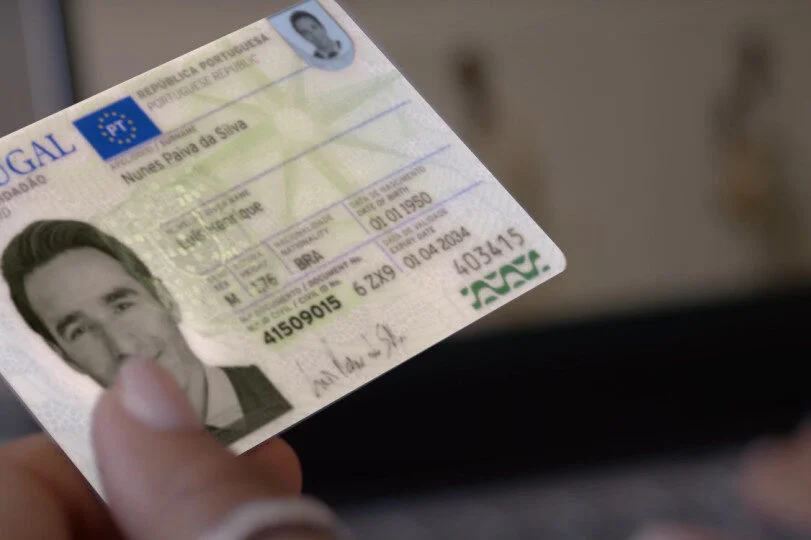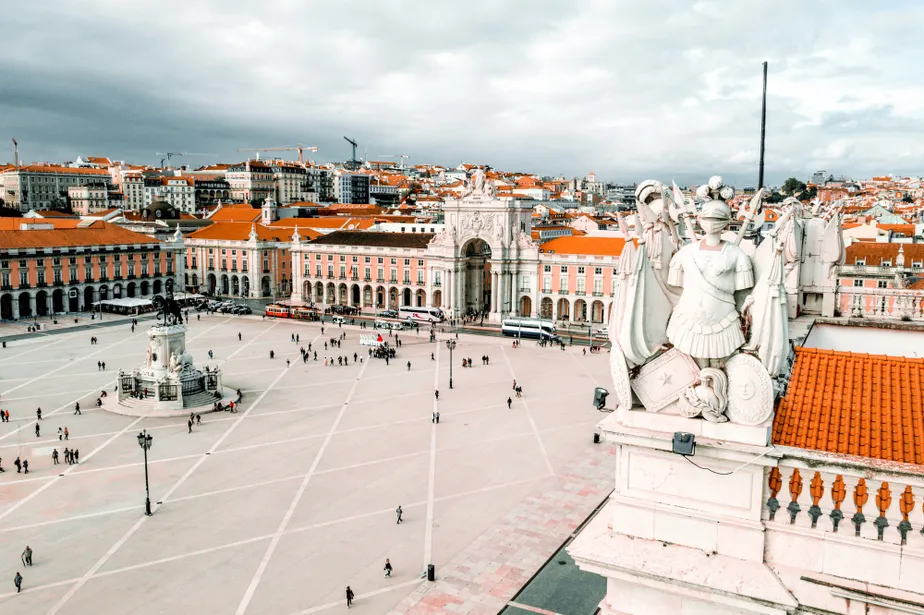Joaquina do Pompéu and her Sephardic descent in Minas Gerais

Sephardic descent can be found in every corner of Brazil today. However, in some territories we find deeper marks of this presence and its impact on Brazilian lands. This is the case, for example, in Minas Gerais. The State has a vast Sephardic descent and a significant part of it is linked to the union of Joaquina Bernarda da Silva de Abreu Castelo Branco with Inácio de Oliveira Campos, right descendant of Antônio Bicudo Carneiro.
Dona Joaquina do Pompéu, as recorded in history, was the daughter of Portuguese immigrants to Brazil before her birth. His father, Jorge Abreu Castelo Branco, was a lawyer and a native of the city of Viseu, in northern Portugal. Her mother was called Jacinta Teresa da Silva and it is said that she was from Faial Island, in the Azores archipelago. Born on August 20, 1752, in Mariana, in the captaincy of Minas, Joaquina, after her mother's death, moves in 1762 with the rest of the family to the Pitangui village.
The union with Inácio de Oliveira Campos
It was in the family's new home that she met and married, in 1764, Inácio de Oliveira Campos, then captain-mor of the captaincy of Minas Gerais. Direct descendant of the Sephardic Antônio Bicudo Carneiro, Captain Inácio was commander of the Companhia de Ordenanças and under the orders of the governor of the Captaincy of Minas Gerais, he commanded the bandeirante incursion that explored the interior of Minas Gerais and Goiás. Inácio and Joaquina had 10 children.
Soon after the wedding, the couple leased the Lavapés farm, located on the outskirts of Vila de Pitangui. It was in those lands that Joaquina, in addition to the wife of the captain-major and mother of his offspring, took her first steps to become a political force that is still recognized in Minas Gerais. As the husband's duties required him to spend long periods away from home, Since the beginning of their marriage, Joaquina had a very present role in the administration of the farm and the family business.
In 1784, seeking to expand the business and the production capacity of agricultural goods, as well as cattle raising, Joaquina and Inácio bought the Pompéu farm, an extensive plot of land that included the Pompéu farms, Mato Grosso, Santa Rosa, Monte Serrate and Diamond. The name of the farm comes from the nickname Dona Joaquina do Pompéu. Since at that time she was primarily responsible for the production and marketing of farm goods.
According to researcher Laizeline Oliveira, “It is at this point in the history of the matriarch that her name will become known in the captaincy of Minas, since she will be one of those responsible for supplying foodstuffs in several villages. […] In mid-1790, Dona Joaquina managed about 10 farms in the region of Vila de Pitangui and in Vila de Paracatu do Príncipe, besides taking care of the commercialization of the products from her farms.”
the lady of Minas Gerais
It is important to highlight that Dona Joaquina do Pompéu's status as a farmer and businesswoman placed her in a position of power in the Captaincy of Minas Gerais, in addition to what family connections already provided her – Joaquina was, for example, a relative of the governor of the captaincy, Count of Valadares. In the book, “Dona Joaquina do Pompéu”, the authors Coroliano Ribeiro and Jacinto Guimarães highlight the absence of a representative of the law, in the region where Joaquina exerted her influence, she was the one who gave the final word whether to punish, arrest or investigate, as well as to grant pardons or pardons.
However, her prominent place in the social, economic and political life of the region did not prevent Dona Joaquina from exercising her role as matriarch within her family. family. Concerned with preserving the family's status and assets, she ensured good marriages for her four sons and six daughters, with individuals circumscribed in family or friendship circles. Thus, through the marriages of the children, Joaquina strengthened even more economic and friendship ties.
Referring to the figure of Dona Joaquina, Oliveira states that “The Pompéu Farm, the matriarch's main house, without a doubt, was the greatest symbol of Dona Joaquina's power. In the Inventory Records, registered in Pitangui, we can measure the size of the property that covered what is now more than 10 municipalities in Minas Gerais. The property had the manor house where the family lived, sugarcane and sawmill, two mills, four monjolos, magazine, corrals, slave quarters, varied plantations (maize, coffee, cotton, rice, etc.), pig sevo, cattle, horses.”
your offspring
Dona Joaquina do Pompéu died in 1824, 20 years after her husband, and left a legacy that has been extended over time. It is easy to find works and researches that seek to understand the importance of this woman in the patriarchal colonial context of Portuguese America in the 18th and 19th centuries. In addition, Dona Joaquina continues to be celebrated in the region where she built her family and fortune.
According to information from the Municipal Council for Cultural, Artistic and Historical Heritage of Pompéu, it is estimated that from the union of Joaquina with Captain Inácio, in addition to the 10 children, there will be a Sephardic descent that extended to 87 grandchildren, 333 great-grandchildren and 1,108 great-grandchildren, with the number of descendants, nowadays, reaching 80 thousand people spread throughout Brazil.
Also watch the video: Sephardic Jews in Minas Gerais
Important to remember
Last names are indications, but they do not determine whether or not you are descendants of Sephardic Jews. To prove this link, a genealogical study is really necessary.
Find out if you are a Sephardic Jew descent
To do this, you just have to correctly answer all the fields on our pre-analysis form. There are no costs associated with completing the form.

New Portuguese citizen? Find out how to issue your identity document.
In recent weeks, many nationality processes have been completed, resulting in hundreds of Martins Castro customers now officially Portuguese. […]

Sephardic Jews: do you have to live in Portugal for three years?
Many doubts have arisen about the changes in Portuguese law regarding the acquisition of nationality by descendants of Jews […]

Martins Castro in the Media: Diário do Nordeste (Brazil)
Couple from Fortaleza obtains Portuguese citizenship after discovering Jewish family expelled from European country Decree-Law grants documentation for relatives of […]